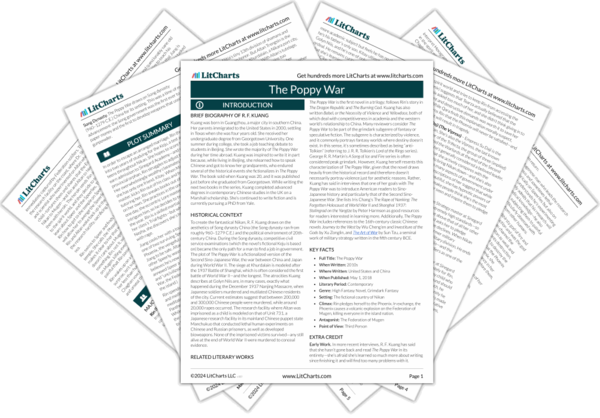Early on in Kitay’s account, it becomes clear that the Empress has been doing a poor job of leading her people. Especially when considered alongside the heavily implied possibility that she is actively selling out her own people, she begins to look like an antagonist rather than a good person Rin and the Cike should strive to support. The atrocities Kitay details are, again, horrific. The Federation soldiers have been taught so fully to dehumanize others and themselves, so they’re able to emotionlessly kill fellow human beings for sport (and seemingly not feel any remorse about that). Interestingly, in turn, this makes the Federation look less human—what kind of monster, after all, delights in mass murder?
